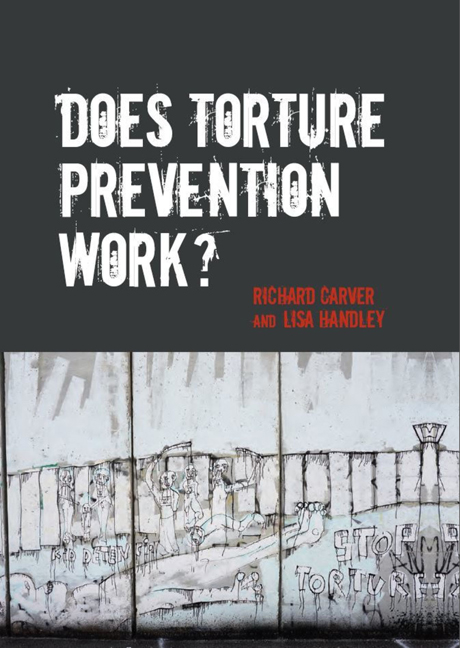Book contents
- Frontmatter
- Contents
- List of Tables
- List of Figures
- Foreword
- Acknowledgments
- Contributors
- 1 Introduction
- Overview and Findings
- Prevention Sustained
- Prevention Stalled
- Prevention Expected
- Prevention Denied
- 14 Ethiopia
- 15 India
- 16 Kyrgyzstan
- 17 The Philippines
- Conclusion and Future Strategies
- Bibliography
- Index
14 - Ethiopia
from Prevention Denied
- Frontmatter
- Contents
- List of Tables
- List of Figures
- Foreword
- Acknowledgments
- Contributors
- 1 Introduction
- Overview and Findings
- Prevention Sustained
- Prevention Stalled
- Prevention Expected
- Prevention Denied
- 14 Ethiopia
- 15 India
- 16 Kyrgyzstan
- 17 The Philippines
- Conclusion and Future Strategies
- Bibliography
- Index
Summary
Introduction
During the last 30 years (1985–2014), five major factors have strongly influenced the human rights situation, including the incidence of torture, in Ethiopia: the change of government in 1991, the conflict with armed insurgent groups, ethnic-related conflicts, the war with Eritrea (1998–2000), and the 2005 national election.
In 1974, the Derg, a group of men and officers from the army, the police force, and prison service, established a military dictatorship that remained in power until 1991. After defeating his opponents, Major Mengistu Haile Mariam emerged as its leader. Ethiopia remained under the Derg's brutal political rule for the first five years of the study period. Torture and detention were widespread during and following the notorious ‘red terror’ (1976–78).
In the late 1980s, war between the Derg government and armed insurgent groups from the provinces of Eritrea and Tigray (notably the Eritrean People's Liberation Front and the Tigray People's Liberation Front) caused a deterioration in respect for human rights. In 1988, the government declared a state of emergency in both provinces, and security and police forces committed numerous human rights abuses, including widespread torture and ill treatment, against suspected insurgents and their supporters.
In 1987, the Derg adopted a Constitution, after ruling for 13 years without one. It declared that the People's Democratic Republic of Ethiopia was a one-party state, in which the Workers Party of Ethiopia was the single party. This attempt to legitimize the Derg did not improve the political environment or respect for human rights. President Mengistu remained head of state, leader of the armed forces, and chairman of the Workers Party of Ethiopia; the state continued to repress political dissent; and the insurgency continued.2 At this time, Ethiopia was not party to any of the major international human rights instruments, including the International Covenant on Civil and Political Rights, and the Convention against Torture and Other Cruel, Inhuman, or Degrading Treatment or Punishment (UNCAT).
- Type
- Chapter
- Information
- Does Torture Prevention Work? , pp. 471 - 500Publisher: Liverpool University PressPrint publication year: 2016

